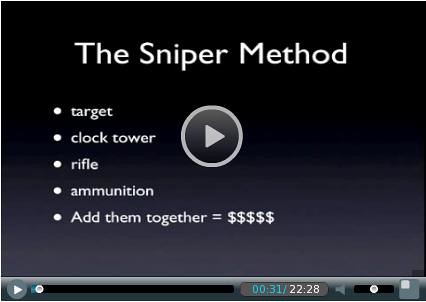What a fantastic basic concept.
Hitler lost the second world war because he attacked Russia too soon. udervise ve vood all be speeking Deutsch now.
We employed the alternative massively effective budgetting tool.
Be a self employed Engineer for 15 years with take home pay of £50K a year and spend it all (and more besides, because ‘I want one of those NOW’) because ‘my jobs safe’.
Watch as the banks destroy the worlds finances.
Suddenly realise that over 90% of British industry is ultimately owned by Japanese investment banks, who suddenly have no money to fulfill their legal obligations to complete legislation driven improvment projects.
Watch as my £50K a year take home falls to ZERO.
Start a brand new business with Kleeneze (sorry not available in the USA) Which although it’s building really well is , after all, a business and needs time.
Suddenly HAVE to live on £18K a year GROSS.
Best Motivation for re-inventing your budget that anyone can have LOL.
We used to spend about £1,000 a month on groceries, now we spend around £300 a month, AND we eat more healthily.
Fortunately the finance on my car ended a month after our income disappeared saving us £375 a month.
We’ve sold my wifes’ car (THAT hurt) it was a really nice car, but it was costing us £489 a month in finance.
We’ve moved to a cheaper house saving us £400 a month in rent.
We’ve cancelled everything that wasn’t absolutely essential - including SKY and the TV license (It’s true, you don’t die if you turn the telly off!)
We still have creditors who we’re negotiating reduced payments and frozen interest with, but basically we are starting again from scratch.
We won’t fall into the credit trap again
Certainly not in the next six years or more ‘cos no-one in their right mind will give us credit now anyway!!
The one thing that keeps coming back to me though is
WHY aren’t our schools teaching kids how to budget? It’s a thousand times more important than even the basics.
Who cares if you can’t spell budgit if you can make one and stick to it.
It CAN’T be one of the things that are left to parents because nobody ever taught us!
Back to subject,
Your article is brilliant and if it helps one person (which I’m sure it already has) to get out or stay out of debt then you’ve done a service to humanity.
Keep it up &
we’ll see you
OVER the top
Forget the coupon clipping. A straightforward, realistic budget is the best deal you'll ever find.
Why is a budget the best deal? Because, just like your childhood puppy your budget will always be there for you, no expiration dates, no fine print to yank away the savings after you've already been whipped into a furry of consumerism. If you care for your budget it will take care of you so that "saving" isn't just not unnecessarily spending an extra $5 at the grocery store this week; but actually saving money in a high yield savings account. Another great thing about a budget is that, again like your puppy, it will take you back even if you screw up.
Think outside the sale. For years I chased after deals and discounts like they were the oxygen keeping me alive. It didn't matter if I needed an item or not -- if there was a sticker advertising 60, 70, 80 or 90% off a gadget, I wanted to buy it. How could I pass up the savings?
It wasn't until recently that I realized a budget is the best deal you can find. After taking a few minutes to look at how to put together a budget I realized that it takes less time to set up and follow a budget than it does to look for deals every day of the week.
Thanks to great free personal finance management (PFM) tools from sites such as like Mint.com, Rudder and others you can easily create a budget and track how well you are following it each day. These tools will even send you a notification when you go outside of your budget so you aren't shocked at the end of the month. If you don't already have a successful budget don't start creating one yet. First go read these tips for setting realistic budget.
Advice on Budgeting
- Reverse Budget - A savings first solution from FiveCentNickel
- Budgeting basics - a Budget primer from Consumerism Commentary including suggestions on how to get started.
My personal favorite and current method of budgeting isn't so much a budget as it is smart spending. Ramit Sethi explains the model in his book I Will Teach You to Be Rich, calling it, "Conscious Spending." Instead of focusing on the minutia Sethi concedes that it is in fact OK to, "Spend extravagantly on the things you love, and cut costs mercilessly on the things you don't."
A budget may be the best deal, but that doesn't mean you need to give up on coupon clipping and bargain hunting; just make these tools that support your plan instead of the main focus. If you plan for your purchases, by saving up at SmartyPig or setting a goal in Rudder, you can still go looking for a deal on your next purchase and pay in cash. Trust me, there's something really incredible about paying in cash for the new camera that you've researched and found the best deal on.Thanks to great free personal finance management (PFM) tools from sites such as like Mint.com, Rudder and others you can easily create a budget and track how well you are following it each day. These tools will even send you a notification when you go outside of your budget so you aren't shocked at the end of the month. If you don't already have a successful budget don't start creating one yet. First go read these tips for setting realistic budget.
Advice on Budgeting
- Reverse Budget - A savings first solution from FiveCentNickel
- Budgeting basics - a Budget primer from Consumerism Commentary including suggestions on how to get started.
My personal favorite and current method of budgeting isn't so much a budget as it is smart spending. Ramit Sethi explains the model in his book,
I Will Teach You to Be Rich, calling it, "conscious spending." Instead of focusing on the minutia Sethi concedes that it is in fact wise to "spend extravagantly on the things you love, and cut costs mercilessly on the things you don't."
A budget may be the best deal, but that doesn't mean you need to give up on coupon clipping and bargain hunting; just make these tools that support your plan instead of the main focus. If you plan for your purchases, by saving up at SmartyPig or setting a goal in Rudder, you can still go looking for a deal on your next purchase and pay in cash. Trust me, there's something really incredible about paying in cash for the new camera that you've researched and found the best deal on.
internet marketing course How much is enough? Do you feel you need to slow down? Is your budget busting at the seams? Have your felt your busy and materialistic lifestyle screaming to you to make some kind of change to down size or simplify your life? To explore the world of voluntary simplicity and frugality and greener living and how these things all go hand in hand, the following web sites are some of the best places on the internet to get started to educate yourself about how to change your life and environment for the better.
Choosing Voluntary Simplicityhttp://www.choosingvoluntarysimplicity.com/
At the
Choosing Voluntary Simplicity web site you will learn :
How To Slow Down
How To De Clutter
Green Living and Simpler Living
Downsizing
Frugal Gardening and much more
Affluenza and Escape From Affluenzahttp://www.pbs.org/kcts/affluenza/
This is a PBS series from years ago that will inspire someone into voluntary simplicity and see examples of people who have taken extreme measures to downsize and simply their life into voluntary simplicity and frugality. The web site has links to voluntary simplicity organizations, magazines and newsletters, An idea list of 100 ways to escape from affluenza. Additionally this PBS web site on Voluntary Simplicity has a quiz to see if you are ready to change your lifestyle and also an extensive list of resources and ideas for frugal and simple living.
Live Simply at Suite 101http://greenliving.suite101.com/
Tips, information, encouragement, and discussion for those who wish to take control of their lives and learn to relax and simplify. From organic pest control to, eco friendly cleaning to best ways to conserve water and save on home heating costs, this web site covers the gamut of frugality in harmony with greener living.
Pioneer Thinkinghttp://www.pioneerthinking.com/
Pioneer Thinking is a self- described Internet natural living community. Pioneer Thinking shares health, home, and beauty tips. This web site is a collection of articles relating from everything from soap making, organic gardening, children's crafts, budgeting tips. candle making, nutrition, recipes, frugal decorating, thrifty home improvement, and also many mind body spiritual approaches to voluntary simplicity
Simple Living Resource GuideResource guide for people interested in voluntary simplicity, simple living, and downsizing, maintained by the Pierce Simplicity Study.
http://www.gallagherpress.com/pierce/index.htm
This web site extensively covers voluntary simplicity from inspirational stories and memoirs, simplicity lessons, simplicity study groups and 12 step programs, and an extensive list of links to voluntary simplicity books, magazines, newsletters and other resources.
About.com Frugal Livinghttp://frugalliving.about.com/
From bargain shopping to being a frugal senior to handmade gifts and affordable transportation, this web site talks about creative and clever ways to be frugal and to simplify your life.
Adventure Of A Frugal Girlhttp://adventuresoffrugalgirl.blogspot.com/
From dumpster diving to money making ideas to random acts of kindness, Melanie keeps it real and how she rolls.
Totally Frugalhttp://www.totallyfrugal.com/forums/
This is a forum where you can interact with others who devote their lives to frugality or are just discovering ways to become frugal. From energy saving ideas, to analyzing household cash flow, to balancing family challenges with voluntary simplicity and frugality, this forum has many engaging discussions.
I Village Budget Tipshttp://home.ivillage.com/quicklinks_budget/0,,b6frsxdd,00.html
links to a wealth of articles from budget cooking and grocery shopping on a shoestring, to healthy eating, setting finance goals, cleaning and organizing, crafts and educating on all things personal finance related.
The Dollar Stretcherhttp://www.stretcher.com/index.cfm
The Dollar Stretcher will stretch your brain on all things frugal! From paying it forward with pennies, to garage sale tips and shortcuts, to guilt free vacations, frugal proms, home made cleaning products, debt management, what to do when you lose your job to muchmore. And yes, the folks at The Dollar Stretcher even tackle voluntary simplicity as a lifestyle.
penis enlargementJewish Scene: Some 25 Eda Haredit members protest outside postal branch in Bukharim neighborhood in Jerusalem, demanding Ynet news updates shown inside site's screens be removed. Two rioters who broke inside, hit security guards ...
UNICEF, Darfur rebels agree on terms to protect children One of Darfur's main rebel groups, the Justice and Equality Movement, will sign an agreement with.
News and opinion about US politics from a liberal perspective.
how to lose weight fast






